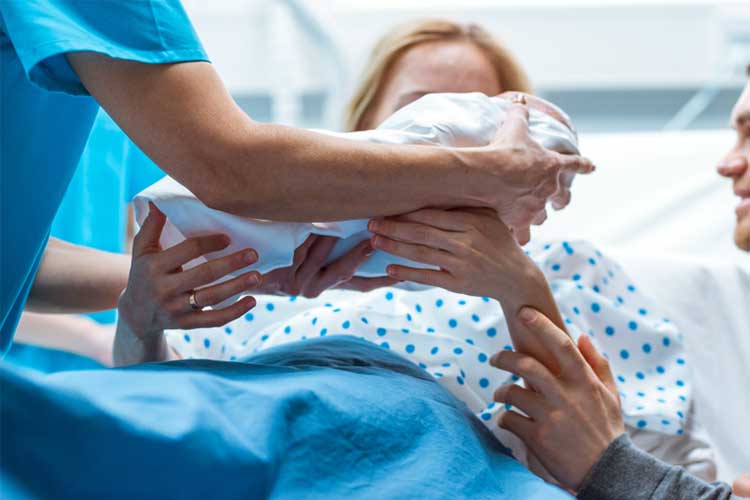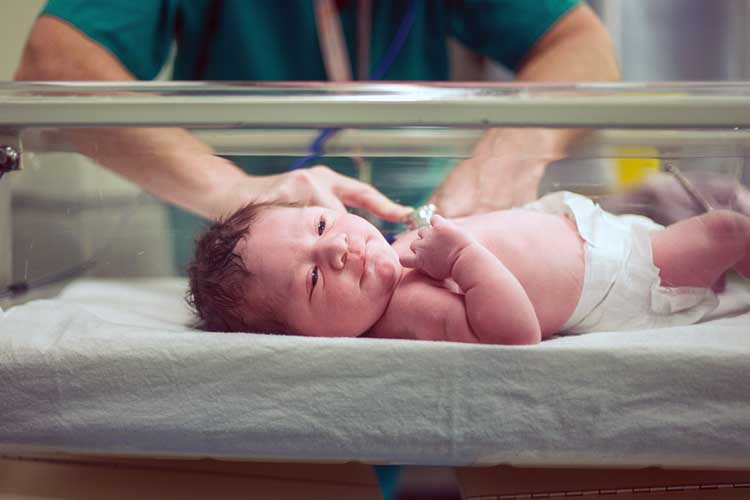Teenage pregnancy (pregnancy under the age of 20) remains a worldwide public health concern (Mann et al. 2020). How can maternity care be improved to meet these challenges and provide optimal care for the pregnant teenager?

Who is Most at Risk of Teenage Pregnancy?
Identified risk factors for teenage pregnancy include:
- Family conflict
- Family violence or sexual abuse during childhood
- Unsable living arrangements
- Living in out of home care
- Poor performance and attendance at school
- Disadvantaged socioeconomic background
- Family history of teenage pregnancy
- Low education level
- Poor self-esteem
- undisclosed same-sex attraction
- Aboriginal or Torres Strait Islander background
- Rural or remote housing
- Mental illness.
(SHVIC 2022)
Risk Assessment
Marino et al. (2016) suggest that outcomes on a range of peripartum measures are also worse for teenage mothers as well as their babies. Longer-term risks for the mother are known to include depression and rapid repeat pregnancy. Yet, other researchers point out that women aged under 20 have one of the lowest rates of maternal mortality of all age groups.
It’s a different picture, however, for the babies born to teenage mothers. Babies born to mothers under the age of 20 are at higher risk of prematurity, low birthweight, being small for gestational age, stillbirth, perinatal death and neonatal death (Mann et al. 2020).
Risks to the Teenage Mother
Research from both Australia (Marino et al. 2016) and the UK (Whitworth 2017) indicates that teenage mothers are more likely to experience violence, family disruption and socioeconomic disadvantage prior to conception.
Negative impacts on educational achievements, social isolation, poverty and increased challenges to physical and mental health are also more likely to affect teenage mothers (Cantlay 2015).
Furthermore, teenage mothers are at increased risk of poor mental health, including post-natal depression, and may struggle to complete their education and find it difficult to gain employment (SHVIC 2022).
Role of the Teenage Pregnancy Midwife
As well as the higher risk factors known to be associated with teenage birth, teenage parents, as well as their children, are at greater risk of social exclusion and lower health outcomes, physically and emotionally.
In practice, this means that becoming a teenage parent, whether planned or not, can be a time of great vulnerability and it’s essential that accessible and relevant support networks are in place< (Morecambe Bay NHS Foundation Trust 2012).
Midwives, along with other members of the maternity team, are ideally placed to help pregnant teenagers build up their confidence, and navigate the many choices and life transitions that come with parenthood.
Midwives can help by:
- Explaining choices clearly and showing respect for the young person’s capacity to make decisions
- Showing belief in their ability to develop effective parenting skills
- Reassuring them that it’s normal for people of all ages to have mixed feelings at the prospect of parenthood
- Avoiding stereotyped assumptions about the choices a young person is ‘likely’ to make.
(RCM 2015)
McCarthy et al. (2014) echo these thoughts and suggest the following practical steps to improve pregnancy outcomes in teenagers:
- Teenagers should be engaged in an open, sensitive discussion about pregnancy options, ideally with the support of their family or partner
- Early liaison with an interprofessional team should be arranged to ensure adequate support and continuity of care
- Long-acting reversible contraceptives should be offered postnatally to prevent rapid repeat pregnancy.

Psychosocial Considerations
One of the most common concerns teenage mothers have is the fear of being judged; while for young fathers, feelings of not being included in the care provided for their unborn child are frequently reported.
These experiences can result in feelings of rejection, which can deter young parents from using the full range of services offered to them.
Taken together, these factors can present a particular test for the maternity team, especially as additional life factors may need to be considered to prevent young mothers from being disadvantaged. For example:
- A teenage woman may not realise she is pregnant
- She may need time to come to terms with being pregnant before she feels able to seek advice
- She may attempt to conceal her pregnancy if she is concerned about the reactions of her friends and family
- She may lack a stable home environment or a home that she can permanently call her own
- She may lack the finances to access health appointments, or care for herself adequately
- A young teenage mother may also display child-like behaviour when under stress.
(Morecambe Bay NHS Foundation Trust 2012)
Conclusion
Even though teenage pregnancy rates are falling in many developed countries, they still represent an important public health problem and are considered to be high-risk pregnancies.
To help meet this challenge, Lehmann (2017) suggests that where possible, community-based group antenatal care should be offered. This has been shown to help empower young women and improve their wellbeing through continuity of care and peer support. This, in turn, can help to improve emotional wellbeing and reduce feelings of vulnerability and isolation.
There is no doubt that modern maternity and neonatal care has already gone a long way in reducing adverse outcomes for the teenage mother and her baby.
The challenge remains for maternity teams to think of even more creative care packages that can give the pregnant teenager the best possible start on her journey towards motherhood.
Test Your Knowledge
Question 1 of 3
Which of the following statements is true?
Topics
References
- Cantlay, A 2015, 'Managing Teenage Pregnancy', InnovAiT: Education and Inspiration for General Practice, viewed 11 September 2018, https://journals.sagepub.com/doi/abs/10.1177/1755738015597458
- Lehmann, K 2017, 'Understanding the Barriers: Managing Adolescent Pregnancy', O & G Magazine, viewed 11 September 2018, https://www.ogmagazine.org.au/19/3-19/managing-adolescent-pregnancy/
- Mann, L, Bateson, D & Black, K I 2020, 'Teenage Pregnancy', Australian Journal of General Practice, vol. 49, no. 6, viewed 24 June 2022,https://www1.racgp.org.au/ajgp/2020/june/teenage-pregnancy
- Marino, J L, Lewis, L N, Bateson, D et al. 2016, 'Teenage Mothers', Australian Family Physician, vol. 45, no. 10) viewed 11 September 2018, https://search.informit.com.au/documentSummary;dn=376943452778983;res=IELHEA .
- McCarthy, F P, O’Brien, U & Kenny, L C 2014, 'The Management of Teenage Pregnancy', BMJ, vol. 349, pp. 5887, viewed 11 September 2018, https://www.bmj.com/content/349/bmj.g5887
- Morecambe Bay NHS Foundation Trust 2012, Teenage Pregnancy, viewed 11 September 2018, https://www.bestbeginnings.org.uk/Handlers/Download.ashx?IDMF=b8693fd7-cd24-46b7-91a2-0b3f350d4c02
- Royal College of Midwives 2015, 'Getting Maternity Services Right for Pregnant Teenagers and Young Fathers', viewed 11 September 2018, https://www.bestbeginnings.org.uk/Handlers/Download.ashx?IDMF=d9cf3890-c56e-4608-998c-397b920ead85
- Sexual Health Victoria, Teenage Pregnancy, Sexual Health Victoria, viewed 24 June 2022, https://shvic.org.au/for-you/pregnancy/teenage-pregnancy
- Whitworth, M, Cockerill, R & Lamb, H 2017, 'Antenatal Management of Teenage Pregnancy', Obstetrics, Gynaecology & Reproductive Medicine, vol. 27, no. 2, pp. 50-56, viewed 11 September 2018, https://www.sciencedirect.com/science/article/pii/S1751721416302445
- Yasmin, G, Kumar, A & Parihar, B 2014, 'Teenage Pregnancy - Its Impact on Maternal and Fetal Outcome', International Journal of Scientific Study, vol. 1, no. 6, pp. 9-13, viewed 11 September 2018, https://pdfs.semanticscholar.org/a3ee/4c6416fd117df623af091e9e3d1308b271ae.pdf
 New
New 
